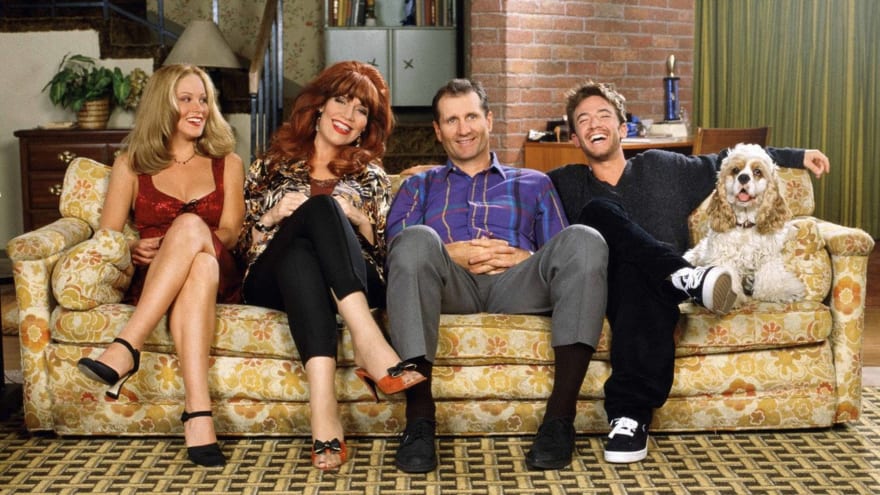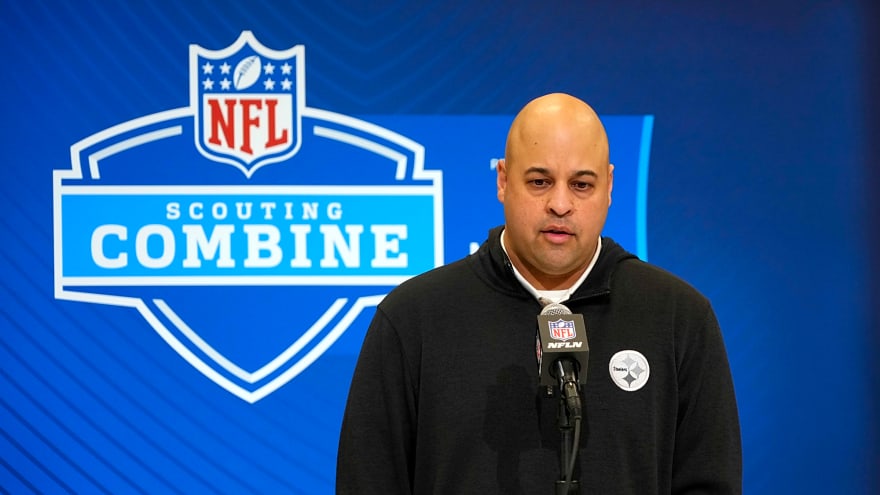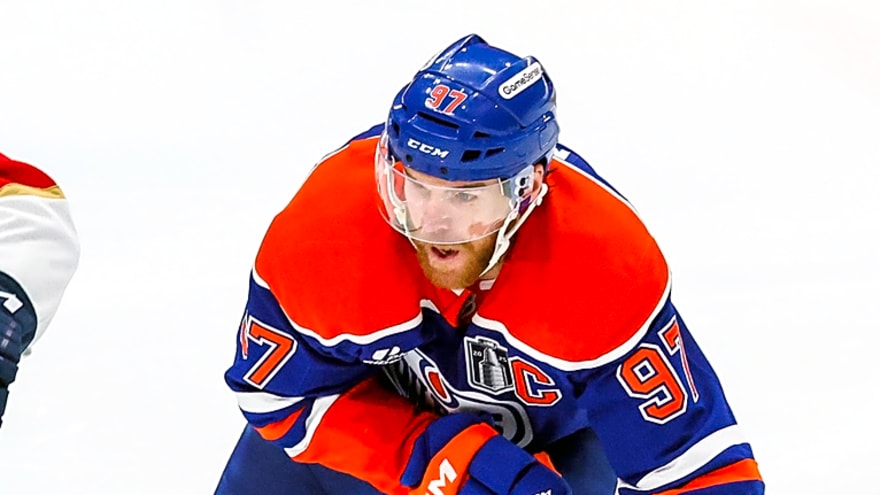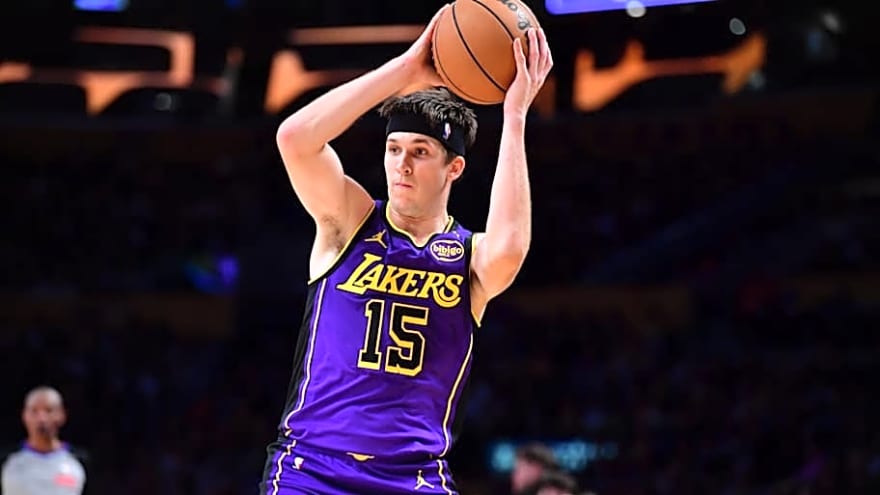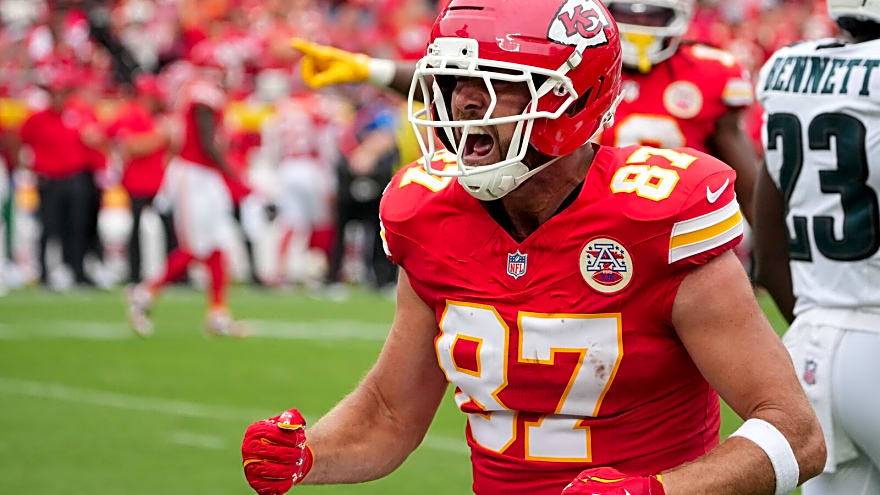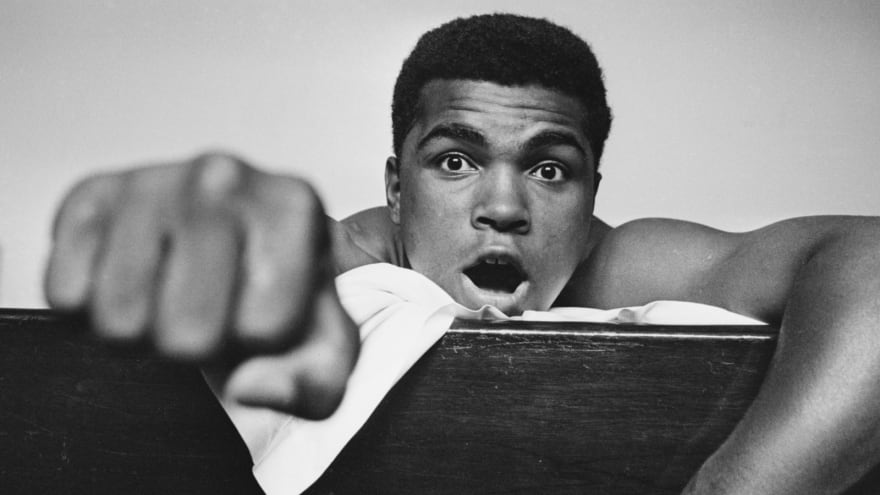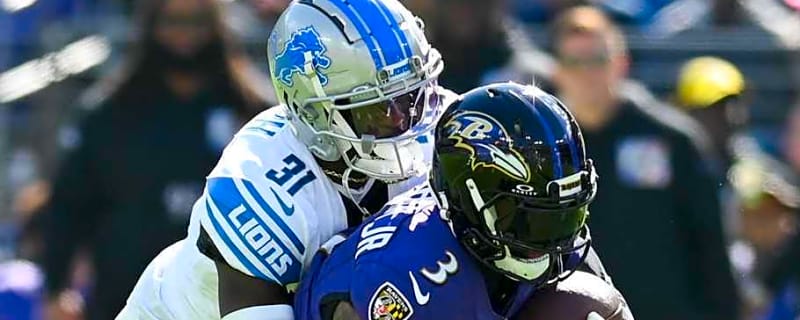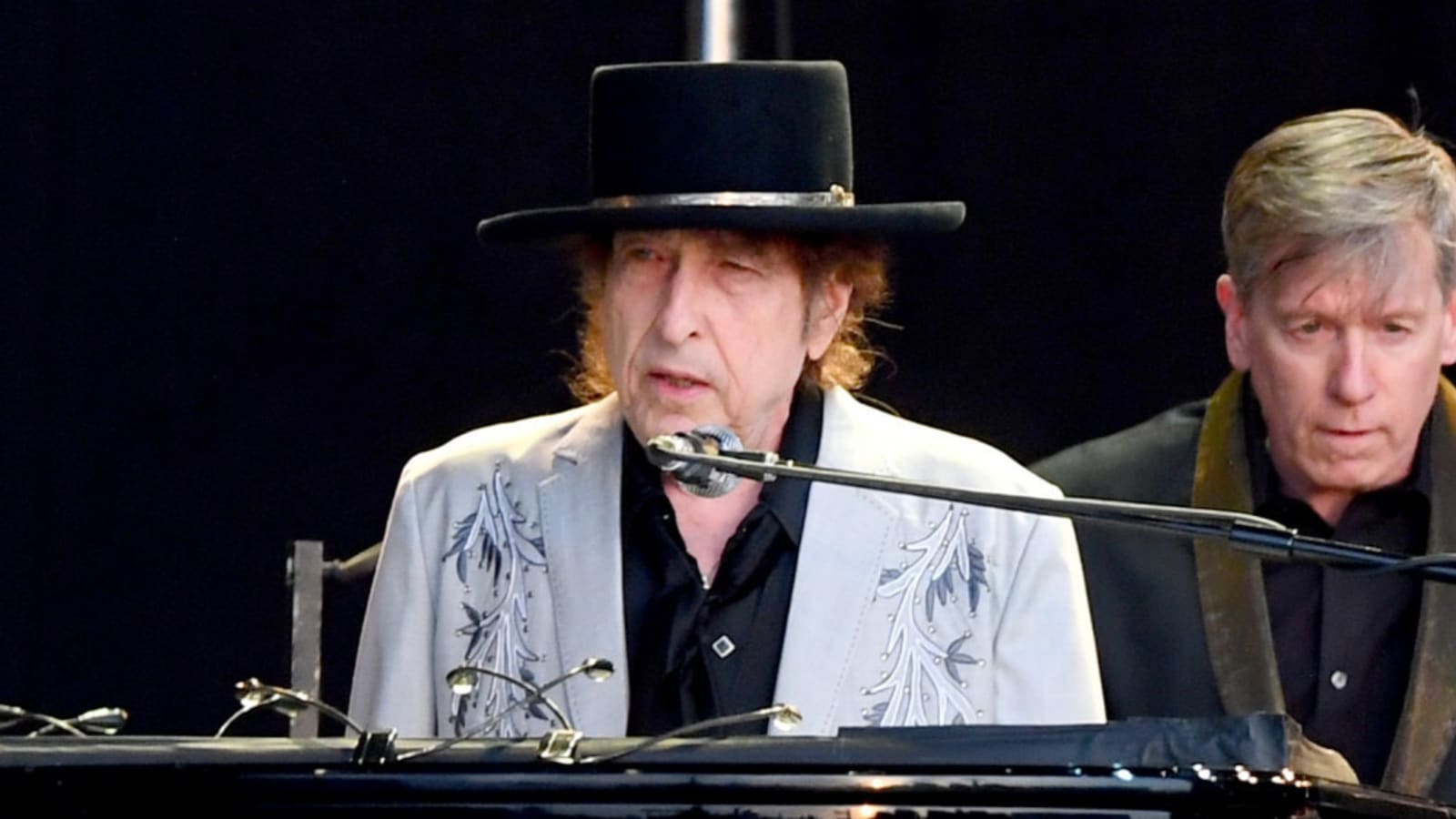
Dylan comes on stage and doesn't speak. The audience are reverentially quiet, too. The Royal Albert Hall has turned into a cathedral, and we are here to worship the high priest of rock: Bob Dylan.
Luckily for us, half of the set that Dylan plays comes from his 'Rough and Rowdy Ways' album, which I feel is his best album for decades. The LP (his 39th studio release) suits his rough, deep and talking voice that is now a substitute for his previous whining tone - endearing as that was. Because the album is so recent, it means that Dylan has not had the chance to get too bored of the songs on it, so he has not mangled and 'destroyed' them in the way some claim he has done so with the classic songs from his repertoire that he plays on tour.
Some classics like 'All Along the Watchtower', which opens this set, and 'It Ain’t Me Babe', which follows soon after, seem to have been reinvigorated by Dylan's tinkering. But 'Desolation Row' - one of his greatest songs - is virtually wrecked by giving it a fast rock tempo treatment. The beauty of that song – as in all of Dylan's classic '60s songs - is in the way that the music matches the intensity and picturesque imagery of the lyrics. Sadly, when Dylan sings it now, there is none of that. Nevertheless, when this version of the song comes to an end, there is thunderous, non-stop applause for minutes. But you can't help feeling that the applause is for a song that Dylan sang way back in the past, and which connected with so many people, not the song he is singing now.
The best songs from 'Rough and Rowdy Ways' that he plays are 'I Contain Multitudes', and 'Goodbye Jimmy Reed'. However, despite his Frankenstein creations of his older classics, we have to admire the fact that Dylan is still so creative and rebellious, and that is why he re-works these songs the way he does.
The 'Rough and Rowdy Ways World Wide Tour' began three years ago in Milwaukee and has seen him perform over 230 shows. Each of those concerts has seen Dylan give us nine out of the 10 songs on that 2020 album.
Compare him with an act like The Rolling Stones; for all their rebelliousness, when they perform, their songs are copycat versions of their hits. They stick to a money-making formula with little innovation. You certainly cannot say that about Dylan.
Personally, I admire his courage and his creativity and think that they are his songs, and he can do what he likes with them. Dylan never wants to stand still or live in the past as the creation of his Songwriter Fellowship proves.
The other interesting thing about his show is that there are no gimmicks. No bright, flashy lights, no pyrotechnics and no undulating male and female dancers, which is sadly what today's breed of pop and rock superstars find necessary to inflict us with. Although I think the addition of some emotional female backing singers would have brought light to Dylan's shade.
Dylan appears on stage hat-less with his brillo pad hair shimmering under the soft moody lights starts most of his songs standing and singing into the microphone and then shuffles over to the grand piano, which he stands playing most of the night.
Though the atmosphere in the Royal Albert Hall is cathedral-like, on stage it's like a smoky blues club. There is little lighting, and the band and Dylan are bound in a tight circle. Unlike Rolling Stones frontman Sir Mick Jagger - who throws himself around the stage - Dylan only shuffles a little bit when he moves onto the piano, which is the instrument he plays all night.
The musicianship from his band is superb, especially his two guitarists Doug Lancio and Bob Britt and drummer Jim Keltner. Dylan's piano playing is, in turns, sorrowful, passionate and pounding. And let's not forget his harmonica playing that hasn't been tampered with. When he blows and sucks it is just like being transported back to the 1960s.
Of course, I wouldn't dream of telling Dylan what songs he should be playing, but really, he should have played 'Murder Most Foul' which, in my opinion, is the best song on 'Rough and Rowdy Ways'. It harks back to the social commentaries that his songs were infused with back in the day.
As the set progresses highlights included 'It's All Over Now, Baby Blue' - from his 1965 album 'Bringing It All Back Home' - 'I've Made Up My Mind to Give Myself to You' and 'Goodbye Jimmy Reed' and Dylan departs the stage after performing 'Every Grain of Sand' from his 1981 album 'Shot of Love'.
That song is infused with meaning because often the last track that Dylan puts on his albums are a harbinger of things to come. It is magical, spiritual song, questioning the meaning of life and is full of biblical references.
The concert started at 8pm and is all over by 9.45pm. The ecstatic crowd howls for more, but it's in vain - Dylan doesn't do encores.
After the stunning show a goodly majority of Dylan fans - some of whom were reduced to tears by his performance - decamped to the delightful pub The Queens Arms nearby, where they mulled over Dylan's performance. Strangers became instant friends because of their shared passion for the man's music. Many have been to see Dylan at almost every show of this tour, and when questioned about their favourite album tell me it is 1966's seminal LP 'Blonde on Blonde', often regarded as the best record of all time.
I chat with some fellow fans about Dylan's first ever concert at the Royal Albert Hall, which took place way back in May 1965. I was lucky enough to be there and I am sure a number of people in the audience at the 'Rough and Rowdy Ways' show were there that night too. On that special night Dylan delivered a magnificent all-acoustic set and talked and joked with the audience. It was one of the best of the many Dylan concerts I have attended and, for me, one of the greatest concerts of all time.
Two songs Dylan played at that 1965 gig, 'It Ain’t Me Babe' and 'It's All Over Now, Baby Blue', are also part of the setlist for the 'Rough and Rowdy Ways World Wide Tour'. What that tells us I’m not sure, but I am sure all those Dylanologists out there will proffer answers.
The times have certainly changed for Dylan over the last 50-odd years, though one thing remains constant - he is still the greatest songwriter the world has ever seen.
It is certain that a number of people went to these concerts because they feel they could be Dylan's last in the UK.
I am not so sure.
After all, his great friend Willie Nelson is still playing live at the age of 91. I don't want to be macabre, but I can't help feeling Dylan will die on stage.
Let us hope this 'Never Ending Tour' - despite what title it may now go under - never ends.
Bob Dylan - November 13, 2024 - Royal Albert Hall setlist:
All Along the Watchtower
It Ain't Me, Babe
I Contain Multitudes
False Prophet
When I Paint My Masterpiece
Black Rider
My Own Version of You
To Be Alone With You
Crossing the Rubicon
Desolation Row
Key West (Philosopher Pirate)
Watching the River Flow
It's All Over Now, Baby Blue
I've Made Up My Mind to Give Myself to You
Mother of Muses
Goodbye Jimmy Reed
Every Grain of Sand
Bob Dylan - May 9, 1965 - Royal Albert Hall setlist:
The Times They Are A-Changin'
To Ramona
Gates of Eden
If You Gotta Go, Go Now
It's Alright, Ma (I'm Only Bleeding)
Love Minus Zero/No Limit
Mr. Tambourine Man
Talkin' World War III Blues
Don't Think Twice, It's All Right
With God on Our Side
She Belongs to Me
It Ain't Me, Babe
The Lonesome Death of Hattie Carroll
All I Really Want to Do
It's All Over Now, Baby Blue
More must-reads:
- The 18 most controversial country music songs
- The 21 greatest country music voices of all-time
- The 20 funniest country music songs ever recorded
- 25 truly awful albums from otherwise awesome musicians
- The 25 greatest opening song lines of all-time
Breaking News
Trending in Entertainment
Customize Your Newsletter
 +
+
Get the latest news and rumors, customized to your favorite sports and teams. Emailed daily. Always free!
TODAY'S BEST

Knicks Lose Out on Free Agent Target
The New York Knicks are sitting back as one of their tryouts joins another team, according to ESPN insider Shams Charania. "Guard Dennis Smith Jr. has agreed to a one-year deal to return to the Dallas Mavericks, agent Daniel Hazan of Hazan Sports Management tells ESPN. Smith reunites with the franchise that drafted him No. 9 overall in 2017 and now he'll compete in training camp in Dallas," Charania tweeted. The Knicks were eyeing a possible return with Smith, the No. 9 overall pick in the 2017 NBA Draft, as recent as this week. The Knicks brought him in for a workout and he scrimmaged in the team facility with other members of the organization and training camp hopefuls. However, Smith is returning to the Dallas Mavericks, where he began his career. Instead of signing Smith, the Knicks decided to target veterans Malcolm Brogdon and Garrison Mathews while re-signing incumbent depth star Landry Shamet to round out their free agency backcourt for training camp. Smith, 27, came to the Knicks in 2019 after things didn't work out with the Mavericks. He was trapped behind Luka Doncic and Jalen Brunson in the guard rotation, so he was traded to the Knicks along with DeAndre Jordan, Wesley Matthews and two future first-round draft picks in the infamous deal that sent Kristaps Porziņģis, Tim Hardaway Jr., Trey Burke and Courtney Lee to the Mavs. Smith tried to be the starting point guard in New York, but with Elfrid Payton and Immanuel Quickley ahead of him on the depth chart, he asked to join the Knicks' G League club in Westchester. Shortly after that, he was traded to the Detroit Pistons for Derrick Rose. Smith averaged 8.7 points and 3.7 assists in 58 appearances across three seasons with the Knicks. Since his time with the Knicks, Smith has bounced around the league, playing for the Portland Trail Blazers, Charlotte Hornets and crosstown rival Brooklyn Nets. Last year, he played with Real Madrid, but now he is hoping to get back in the NBA, this time back where it all started with the Mavericks.
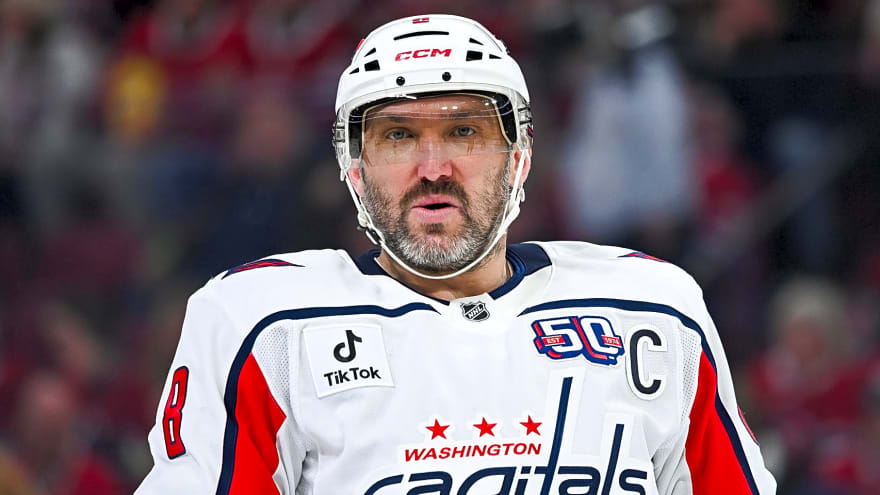
Concerning report emerges about Capitals star Alexander Ovechkin's health
The Washington Capitals began their first day of training camp with an injury scare, as star left winger Alexander Ovechkin left practice early with a lower-body injury. Alexander Ovechkin addresses the media It wasn't immediately clear if the injury affected the same leg that Ovechkin broke last year, when a fractured fibula cost the Capitals captain 16 games. The injury was not severe enough to restrict Ovechkin from speaking to reporters following Thursday's practice. Per NHL.com's Tom Gulitti, Ovechkin sounded "unconcerned" about his lower-body injury, but he added that the Capitals captain might not skate on Friday when training camp resumes. Gulitti added that Washington head coach Spencer Carbery called the decision "precautionary" to take Ovechkin off the ice. Ovechkin, who turned 40 on Wednesday, enters the 2025 season as the NHL's all-time leading goal-scorer with 897 tallies. When asked if he is approaching this season as if it would be his last, Ovechkin said he didn't know. Ovechkin is also the NHL's all-time leader in regular-season power-play goals (326), game-winning goals (136) and shots on net (6,864). Depending on the severity of this injury, Capitals fans may have to wait to watch Ovechkin continue padding those totals and try to lead the Caps to their second Stanley Cup.

Data shows who is to blame for the offensive struggles, and confirms the one area the Commanders must improve in
The Washington Commanders' passing offense hasn't been what we're used to through the first two weeks, and a lot of people are trying to pinpoint what's going on. The passing struggles were expected with a new offensive line, new weapons on offense, and Terry McLaurin missing a lot of time right before the season, but the data shows it's much more than that. The offensive line hasn't helped the passing game at all, but the real story is what the wide receivers are doing, and not doing downfield. The real factor in the lack of production Jayden Daniels has done everything possible with what he's been given, but we all expected the offense to be clicking with all the new additions this offseason. Through the first two games, Daniels has had his worst performances to date, and has a completion percentage of only 59.7%. When you watch the film, though, he's not getting much help downfield with wide receivers getting separation, and the data backs it up. As a whole unit, the Commanders' wide receiver corps has the worst overall separation score in the league. Noah Brown has the best separation score for the Commanders, and he's barely in the positives. Meanwhile, Terry McLaurin, Deebo Samuel, and Jaylin Lane are all in the negatives. Kingsbury expects improvement Offensive coordinator Kliff Kingsbury talked about the offensive struggles and what he expects moving forward. "As far as Green Bay went," Kingsbury said. "First off, you gotta give them a lot of credit. I think that the defensive staff does a tremendous job there. They have a really good defense, a talented defense, and they got after us. Any opportunities we had, we didn't seem to make the most of, but it's week two. Gotta keep getting better, gotta keep learning together. We haven't been together that much as a complete unit, getting on the same page, and so it was good to get back this week and actually practice and get out there and try to build. But yeah, I just think we're a work in progress right now.” McLaurin is obviously the biggest part of the offense, and he only has 75 yards, which is third on the team, and has yet to find the endzone. There have been a couple of missed opportunities by Daniels, but a big factor is the lack of separation on offense, which can be blamed on both skill and scheme. Both are fixable, and the Raiders' secondary allows the offense to open up regardless of who plays QB on Sunday.

Scout identifies key issue behind Arch Manning's underwhelming start
To overcome his early struggles, Texas Longhorns quarterback Arch Manning should follow a classic bit of advice from former UCLA Bruins men's basketball head coach John Wooden. Wooden once said, "Be quick, but don't hurry." The tip could make a massive difference for Manning, who has completed a below-average 55.3 percent of his passes through three starts. Longtime scout Todd McShay explains how Arch Manning is rushing while reading defenses In a story published Thursday, McShay explained the QB is trying to read defenses too quickly. Rushing this process is affecting his throwing mechanics, which have been scrutinized throughout the season. "When a quarterback is pressing, the game is moving faster in his mind, which can cause rushed mechanics and inaccurate passes," McShay wrote. "There's no rhythm — it's like watching a frustrated golfer swing or tracking the beats of a broken metronome." Fox Sports college football analyst Joel Klatt, a former Colorado Buffaloes quarterback, shared a similar assessment of Manning. On a Wednesday episode of his podcast, Klatt further explained how this can impact his accuracy. "He's going from one to two before the picture ever materializes. He's ahead of the timing of the offense," Klatt said. "When that happens, you typically lose balance, you lose your pocket presence, your eyes go down because you're anticipating; the clock is moving too fast." Now, this issue seems fixable. It's just a matter of Manning taking a deep breath and assessing what the defense is giving him. When he does that, the results have looked good. He did so when he threw an 83-yard touchdown pass to wide receiver Parker Livingstone in a Week 2 win over San Jose State. In his Monday news conference, Texas head coach Steve Sarkisian said these "rhythm throws" are when Manning is at his best. It's incumbent upon him and his staff to create those opportunities for the 21-year-old QB. Hitting on more of those groove throws will be critical for Manning in Saturday's home game against Sam Houston State at 8 p.m. ET (ESPN+, SEC Network+). It will help him build his confidence and slow down. When that happens, the game should start coming more easily to him and the rest of Texas' 88th-ranked passing offense (200.3).











